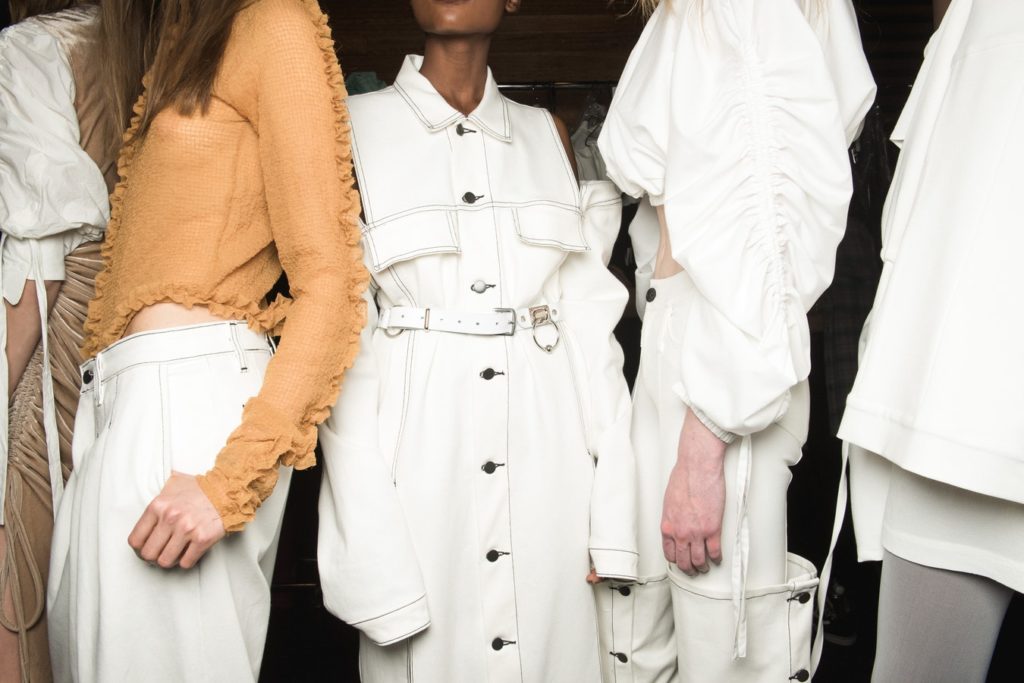Every year, just after the bi-annual runway shows in Copenhagen and right before the Fall/Winter and Spring/Summer runway shows kick off in New York in February and September, Stockholm has traditionally played host to bi-annual shows of its own for Swedish designers and international buyers. But that is about to change. Barely two months before it was set to send Spring/Summer 2020 collections down the runway, the Swedish Fashion Council has said, “No more!”
Instead of following the traditional fashion week format like the other fashion capitals, Jennie Rosén, CEO of the Swedish Fashion Council, says that the organization is “now focusing on creating tools and platforms that are more relevant to the industry’s current needs, such as formats that generate revenue streams and encourage cross-sector collaboration,” as reported by WWD.
Given the “extensive and growing” nature of the Swedish fashion industry, “stepping away from the conventional fashion week model has been a difficult, but much considered, decision,” Rosén says. But with that in mind, “We need to put the past to rest and to stimulate the development of a platform that is relevant for today’s fashion industry … [we need to] support brands in their development of next-generation fashion experiences. By doing this we can adapt to new demands, reach sustainability goals and be able to set new standards for fashion,” she added.
The Stockholm-based group’s announcement comes on the heels of widespread discussions about whether the traditional fashion week format makes sense for most brands. While conglomerate-owned fashion brands benefit from the marketing that is associated with expensive runway show spectacles, the reality for the average fashion brand is nothing like the Louis Vuittons, Gucci, and Chanels of the world, and in fact, only a small fraction of brands that stage shows or presentations likely stand to capture a truly meaningful fashion week return-on-investment.
Nonetheless, most brands incur the expense and continue to stage shows (which tend to set them back $100,000 at the very least) because, well … that is what brands do and have done for decades. It is the traditional model upon which fashion brands are built and operate within the industry. Brands – big and small, established and emerging – show during fashion week, and until relatively recently, it seemed as though the vast majority of them did so without necessarily questioning the individual merits of the situation.
Now, changes are afoot. It is difficult to not sense that fashion has been very much in flux in recent seasons, and that designers – regardless of their size of their brands – are re-examining the old-school fashion week model, which started in New York, at least, in the 1940s in order for brands to secure magazine placements. Is fashion week necessary in the digital era? It is relevant if we consider the unique demands of millennial and Gen-Z consumers?
The result of such inquiries, it seems, is the largescale emergence of the idea that not only is fashion week participation not a requirement for brands (and especially not for less established ones, no shortage of which are situated in New York and London), participation very well might not even be a sound business idea. (It is hardly a secret that a handful of brands that have religiously showed during both NYFW and London Fashion Week have called it quits in recent years).
In confirming that she would not show her collection during the September 2017 New York Fashion Week season, Jenny Packham said she was “questioning the value of the traditional catwalk show” and opted, instead, to launch her Spring/Summer 2018 collection digitally to “provide stronger assets to use across multi-media platforms.”
This is just one example of the countless other symptoms of designers questioning the system and veering away from what was long considered (implicitly or otherwise) the only way. Small scale appointment-only presentations have proven a more compelling – and cost-effective – alternative for some brands, as have online-only shows and the combination of menswear and womenswear onto one runway. Others have taken to relying on a “see now, buy now” model (a trumped-up trend that went virtually nowhere), or the more viable option: Capsule collections that are made available to customers almost immediately after the show in order to actually bank on the press and social media buzz created.
The bold move by the Swedish Fashion Council is the latest development in a larger movement that has very direct ties to the fact that with the rise of social media and influencer marketing, brands can achieve significant results – from a media perspective – without the pomp and circumstance of fashion week.











